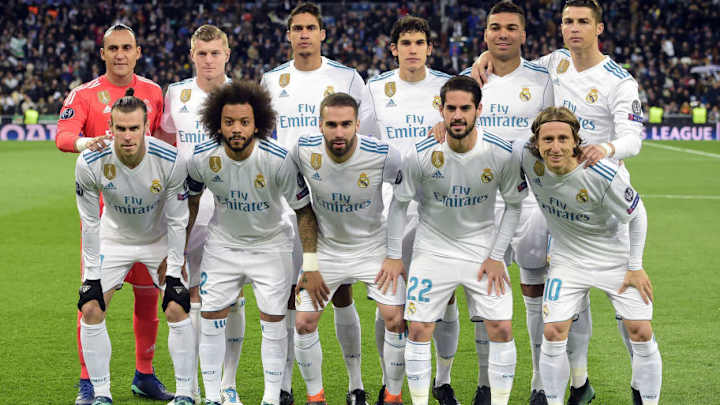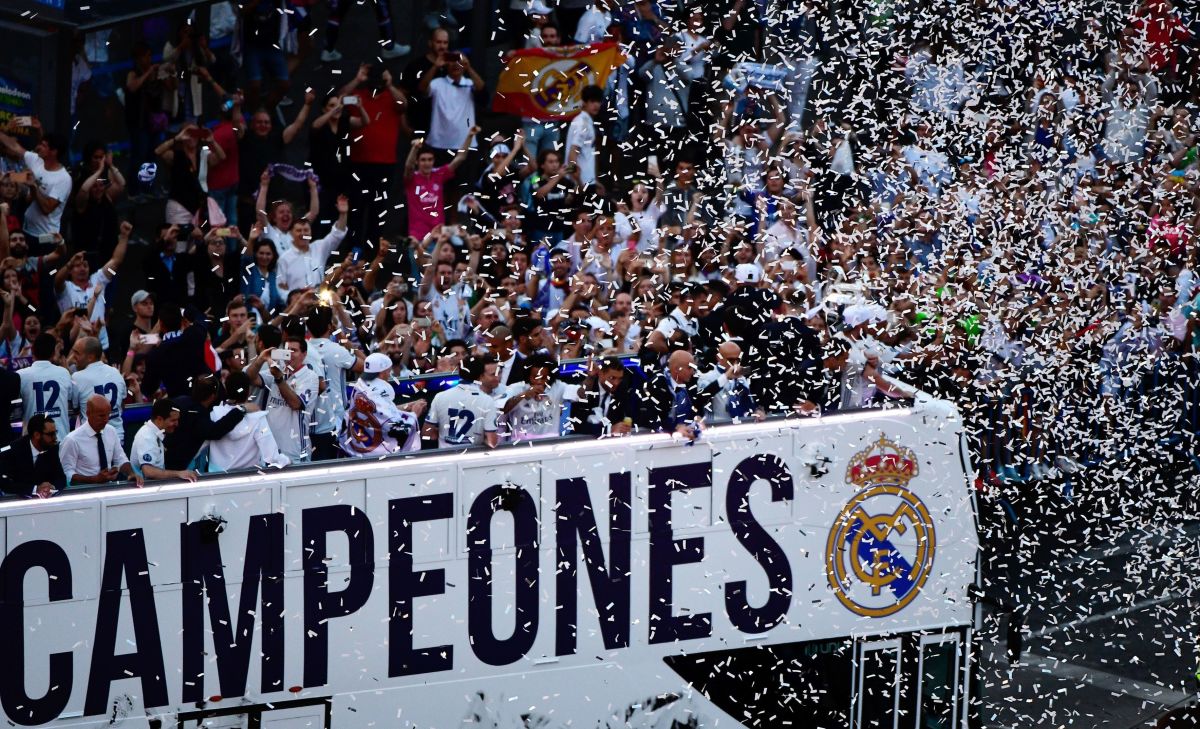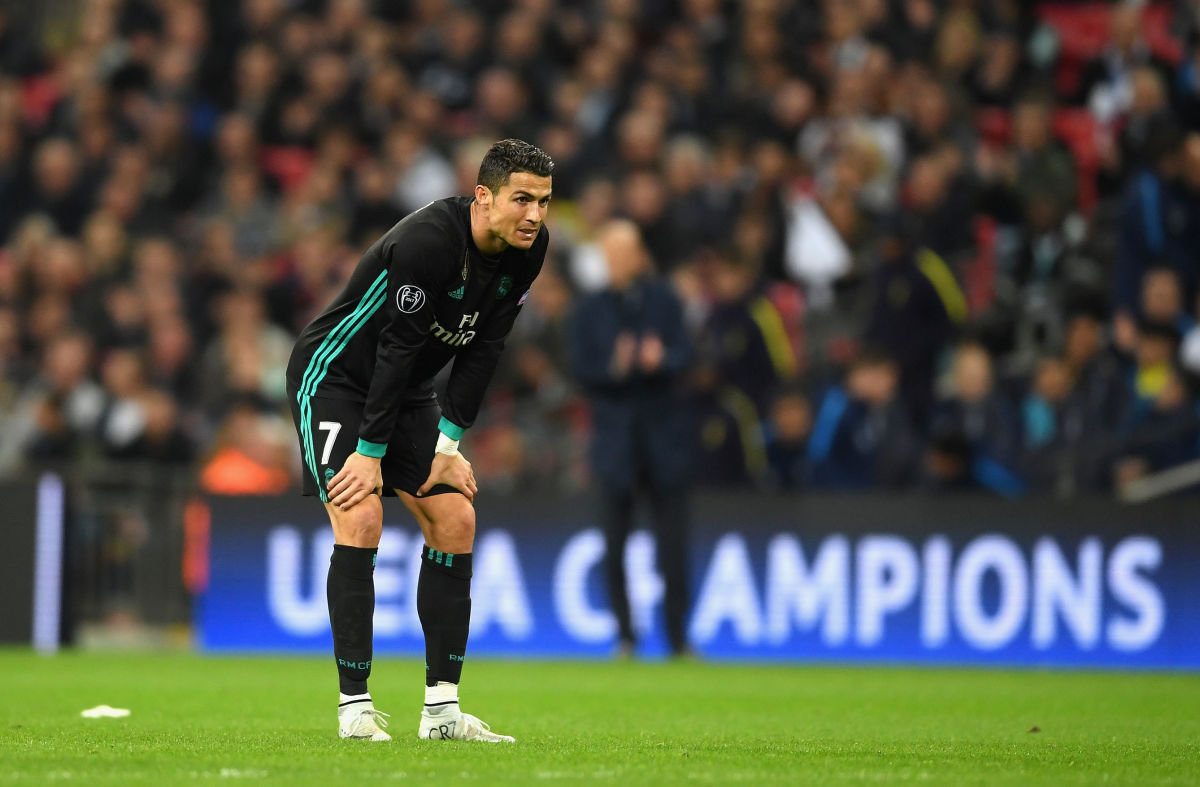Why Real Madrid's Galacticos Don't Deserve to Be Remembered as One of Europe's Greatest Ever Sides

Not since May 1960, when a 127,000-strong Hampden Park watched on as Real Madrid demolished Eintracht Frankfurt to continue the trend of being the only side to lift the European Cup - a stretch which had lasted five consecutive years - has Spanish football, more so the capital had such a stranglehold over the continental game.
During that period, the Los Blancos XI were undeniably one of the greatest sides in history, with such names as Raymond Kopa, Ferenc Puskás and Alfredo di Stéfano leading the line in a top-heavy 3-2-5 formation masterminded by José Villalonga and Luis Carniglia.
"We just had the misfortune to be around at the same time as that incredible Real Madrid team," reflected Stade de Reims goalkeeper Dominique Colonna in 1959 after his side's second European Cup final defeat to Madrid. "If it wasn't for them, Reims might have dominated Europe for years."
Of course, however, Los Vikingos' time at the summit of European football indeed did come to an end; crashing out of the competition in the first round at the hands of Barcelona just months after claiming their fifth straight crown. However, Madrid's demise opened the door for other legacies, ones which, still to this day, prove to be the cornerstone of footballing institutions.
The Ajax collective of 1970-1973 - a side which continues to define the best of today. Barcelona and Manchester City, most famously, have kept Rinus Michels' philosophy alive. But instead of Johan Cruyff, Johan Neeskens, Piet Keizer, Sjaak Swart and Wim Suurbier, names such as Lionel Messi, Andres Iniesta, Kevin De Buryne, Xavi and the one constant; Pep Guardiola, have adapted the 4-3-3 'Total Football' methodology into a much greater beast.
Jurgen Klopp on Pep Guardiola: "Maybe Johan Cryuff started it but Guardiola perfected it at Barcelona." pic.twitter.com/218x7gV7ls
— Squawka Live (@Squawka_Live) December 29, 2016
Bayern Munich of the mid 70s, an outfit built upon West Germany's international success and one which restructured the meaning of defensive football. Although a similar formational structure to that of Ajax during the three years prior, a much greater emphasis on solidity proved to be the overriding aspect.
The security Franz Beckenbauer and Sepp Maier provided allowed the likes of Gerd Müller to score with such efficiency, despite other sides maybe possessing the aesthetically pleasing flair which seems to be most important today.
"I will always cherish the memory of the first European title," Beckenbauer claimed years later. "It was the most important one and the feeling of victory changed in the next two years. We were already past our peak at that point, and the performances dropped. But due to our experience, we had the energy to focus in the most important matches."
Leeds United v Bayern Munich
— Superb Footy Pics (@SuperbFootyPics) May 8, 2017
1975 European Cup Final
Captains Billy Bremner & Franz Beckenbauer Shake Hands Before Kick Off pic.twitter.com/hz34D6btDv
Since then, England has enjoyed long spells of uninterrupted success in the pinnacle of club football - with Real Madrid's opponents on Saturday, Liverpool, leading much of that, particularly during the transition of the late 70s and early 80s. However, not until the present day has such dominance been held by one particular nation, and Los Blancos have the opportunity to continue their incomparable glory this weekend.
But, with that, a question is presented. Does Zinedine Zidane's squad deserve to be held in the same regard as the aforementioned heroes of history?
From one to eleven, superstar names of the present and the future are displayed across the shoulders on the famous all white of the Estadio Santiago Bernabéu. Cristiano Ronaldo, Gareth Bale, Sergio Ramos, Karim Benzema, Isco, Marco Asensio; the list continues. In the dugout, a former Ballon d'Or and World Cup-winner watches on as his men attempt to replicate the trailblazing achievements of years gone by.

Yet, with all their power both on and off the pitch, they do not.
To claim Real Madrid are a one-man team would be disingenuous, to say the least; however, their lack of capability without an in-form Ronaldo, as has also been evident at Barcelona with Messi in patches this year, shows cause for concern. There is little coincidence that Los Blancos' woeful opening half of the campaign domestically, as well as, in some instances, in Europe coincided with the crisis of confidence the Portuguese was suffering.
50% of Los Merengues' 30 Champions League goals this season have come from the 33-year-old, with Benzema (four) and Marcelo (three) the only other two players to have more than a solitary strike to their name. And as was evident during Real Madrid's trip to Wembley late last year, an off night for the poacher can spell disaster.

Also unlike their history-making predecessors, the Spaniard's do not possess a clear identity. Ajax had 'Total Football', Bayern Munich defensive stability. Real Madrid don't really have anything besides the trophies themselves.
In truth, it is hard to evade the overwhelming success Zidane's XI have achieved over the past five years, and it should not be discounted. As already stated, no team since the 1970s has had the chance to assert themselves as the undisputed 'Kings of Europe'.
But when looking back over this period in years to come, to see today's Los Blancos squad hailed in the same regard as Villalonga, Carniglia or Michels', it will be both undeserved and unjustified.
